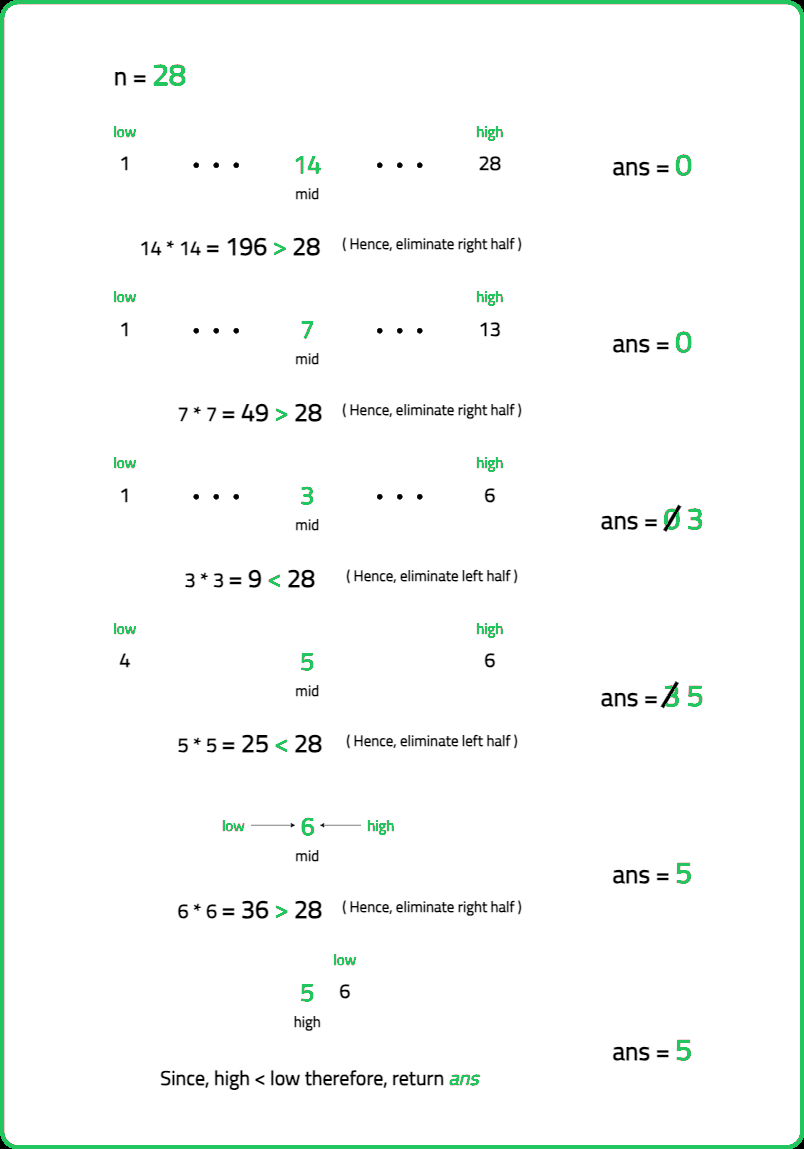Find square root of a number
Binary Search
On answers
Medium
Given a positive integer n. Find and return its square root. If n is not a perfect square, then return the floor value of sqrt(n).
Examples:
Input: n = 36
Output: 6
Explanation: 6 is the square root of 36.
Input: n = 28
Output: 5
Explanation: The square root of 28 is approximately 5.292. So, the floor value will be 5.
Input: n=50
Constraints
- 0 <= n <= 231 - 1
Hints
- The goal is to calculate the integer square root of n, which is the largest integer x such that x2≤n. This can be efficiently solved using binary search as the square root function is monotonic (increases steadily).
- "Use binary search to find x between 0 and n. At each step, calculate the middle value (mid) and its square (mid^2): If mid^2 == n, you’ve found the square root. If mid^2 < n, adjust low = mid + 1 to move right. If mid^2 > n, adjust high = mid - 1 to move left."
Company Tags
Salesforce
Nutanix
Johnson & Johnson
Oracle
Instacart
Riot Games
Texas Instruments
McKinsey & Company
Deloitte
Roblox
Wayfair
Red Hat
Splunk
IBM
Zomato
Freshworks
Unity Technologies
Bain & Company
Teladoc Health
Airbnb
Activision Blizzard
Goldman Sachs
Square
Epic Systems
PwC
TCS
Cognizant
Accenture
Infosys
Capgemini
Wipro
